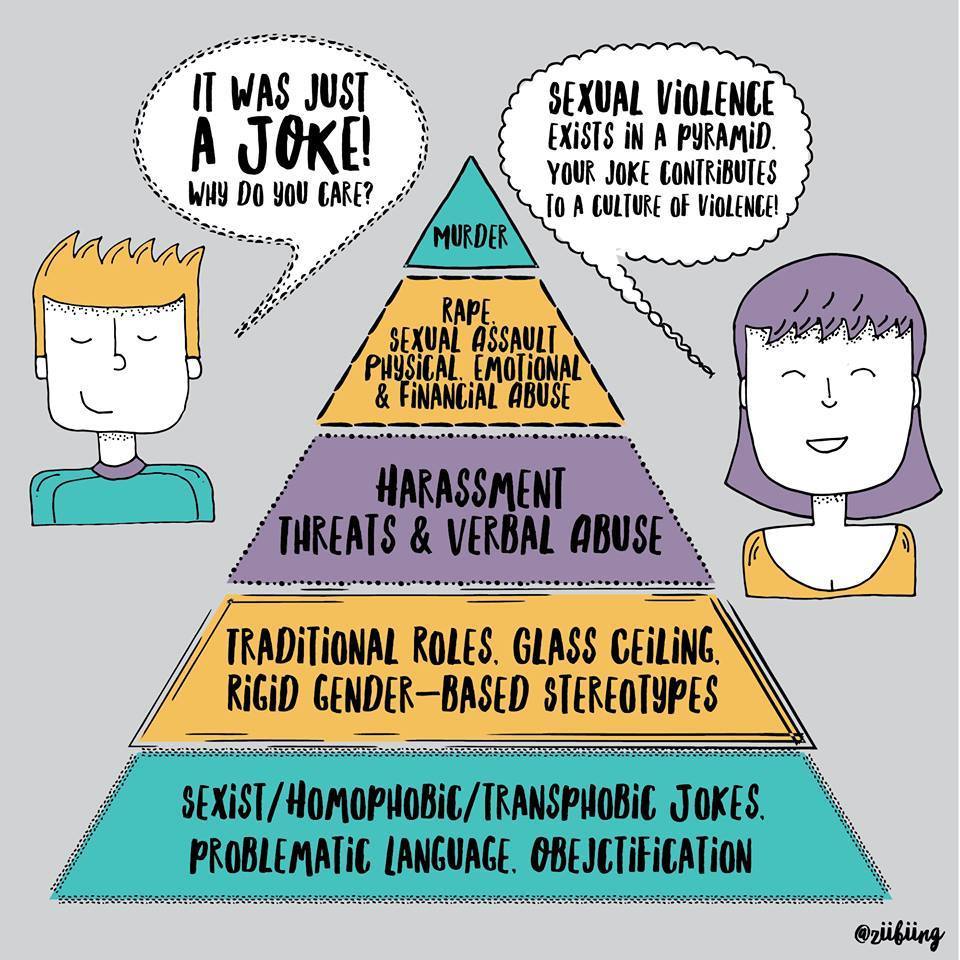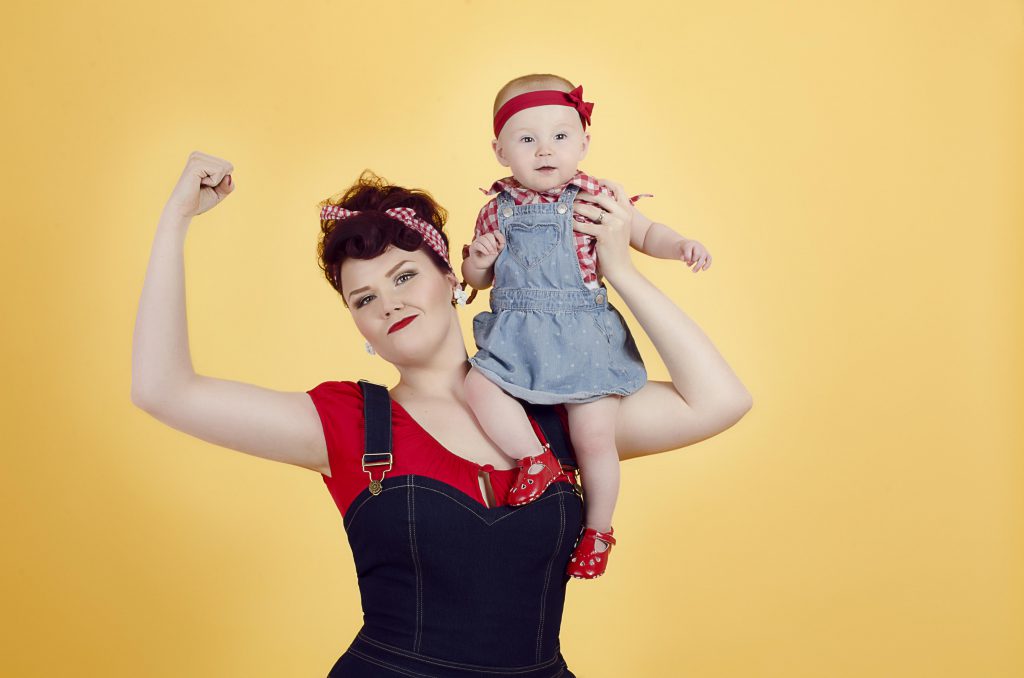While I usually blog about the joys of being an archeologist, I want to shine a light on something far less pleasant – namely the sexism and harassment in academia and archeology with frequently inadequate response from the leadership. Something that was shown in painful clarity recently at the Society for American Archaeology (SAA) conference, when organizers failed to eject a male professor against whom his own university had found multiple counts of sexual discrimination, assault and harassment credible. A number of his victims, who were attending the conference, were so afraid of him they opted-out of parts of the conference rather than risk running into him. By failing to act, the conference leadership wrongly placed the responsibility on his victims, and I wish I could say this was an unusual occurrence.
During my career in archeology and academia so far, I too have had to deal with my fair share (or unfair share I should say) of both implicit and explicit sexism, as well as inappropriate behavior in the workplace. I’ve had my appearance commented on and my body touched without invitation or provocation, and a senior researcher whom I had never met once asked me about what lingerie I was wearing as I walked down the hallway. While expecting the Kid I had one of my professors exclaim, “who says pregnancy is a right”. I’ve even been asked if I was having sex with my internship supervisor by a senior professor, accompanied by a smirk that left me wanting to take a shower. And these are but a few examples.

A certain degree of this kind of behavior is likely not uncommon to most workplaces, but there can be no doubt that it is more pronounced in traditionally male-dominated environments like academia and archeology. For a long time, I felt that since nothing ‘truly terrible’ happened to me, that this was ‘a fact of life’. While I can’t help but worry about how sharing this blog might affect my future, I am done keeping quiet. In today’s age of #metoo, it is becoming ever more clear that we all need to fight the widespread idea that a certain degree of this kind of behavior ‘is just something you have to deal with as a woman’. Even though things are a lot better than they once were, they simply are not yet good enough.
The women who came before, and those who will come after

When I hear the stories of previous generations of brave women in academia and archeology, I thank my lucky stars that they fought the patriarchy the way they did. Amazing women like prof. Corrie Bakels are living proof that we have come a long way as a discipline. For years I decided to ‘just take’ the by comparison low-level sexism and harassment that I sometimes have had to deal with. Unlike Corrie, I have never had a man literally pretend I didn’t exist during a meeting! However, my somewhat accepting worldview, shifted radically 3 years ago when my daughter was born.
When I look at her, I realize that things are still just not good enough. I truly hope that by the time the Kid is grown, she won’t have to deal with harassment and sexism (or any other form of discrimination) in the workplace – or ideally anywhere else of course. Having her has made me realize that if I want that future for her, then it is my turn to follow in the footsteps of the Trowelblazers and do what I can so that she and other young girls will never have to go through similar things.
Time to speak up for equality
I strive for equality in all aspects of life and try to call out sexism or any form of discrimination when I encounter it, and I’ve decided that now is the time to make this part of my online presence as well. In this blog post, I want to speak up about some of my own experiences and I hope that I might be able to raise awareness because no one has to accept an unwanted pat on the rump by a professor or senior colleague (or anyone really). I hope that by speaking out anyone going through similar things will feel less alone and perhaps slightly better equipped to deal with this kind of behavior. And perhaps more importantly, that those still engaging in such acts will realize how their behavior impacts others and change. For it is my experience that in addition to the intentional and active harm-doers (those who verbally or physically harass or abuse), there are also a lot of good people who simply don’t seem to realize what some of us go through. And when I manage to calmly explain why their behavior negatively impacts me or is inappropriate, they generally are willing to listen and learn, and even become active allies.
While I have no delusions regarding any real-world impacts that posting this blog will have, I hope it may contribute to the ongoing dialogue on these issues, and if even one person finds it enlightening and improves their behavior, then I will count that as a win. In the following, I share some of my own experiences, with what I hope is useful advice for dealing with such situations. Please note that while there are undoubtedly many forms of discrimination happening in many workplaces, including sexism towards men or people of color, in this blog I focus on my own experiences as a woman in archeology and academia.
When people ‘joke’ that you got an internship/job/good position because of the way you look/dress
One of the more ‘minor’ transgressions that I feel happens often, is the idea that a woman got a certain prized internship/assignment/job because of the way she looks. I can’t tell you how often I hear things like ‘oh yeah, but he only hired her because of her short skirt/cleavage/high heels’. And while a lot of these comments are said in jest, they can still be harmful. More than once I started to doubt my own abilities because of the number of people joking that my success in a specific venture, or more generally, was down to my appearance rather than talent and hard work on my part.
The insidious thing is that when people do this, you start to question it yourself. But a friend pointed out to me that by even entertaining the idea that I got my internship because of the length of my skirts, I was not only insulting myself (I am assertive and a good researcher, that’s why I got that internship), I was also insulting the guy who hired me. By doubting whether your appearance is the reason you got a certain prized internship/assignment/job, you are saying that the person who hired you is so shallow that they only based their evaluation on your appearance, rather than your qualities. Which more often than not is insulting to the person who hired you.
I guess what I am trying to say is two-fold:
- To the people making the jokes: think about how your joking could affect the person you are teasing before you make these comments.
- If you are the person being teased, by all means, speak up if someone is making you uncomfortable. And remember that if you respect the person who gave you advancement, then you are insulting them by even considering whether they were motivated by anything other than your talent. You both deserve better.
When your friend is also senior to you at work
I have also ended up in some uncomfortable situations when someone in a position of authority over me also was, or became, my friend. Most of my friendships involve a lot of joking and horsing around, including some occasionally inappropriate humor and sexual comments about each other. This is truly fine as long as everyone involved knows where they stand, and that sentiments behind the jokes are innocent and that it is clear to all which lines shouldn’t be crossed. I personally enjoy this kind of banter, and find no fault in complimenting a friend’s appearance, as long as all parties involved (and all partners of) are comfortable with this.
BUT! I have had to explain to male colleagues that I’m friends with that while I don’t mind them, for instance, complimenting my figure when we’re out in a bar, do not do it at work, especially if you hold a position of authority over me. For example, do not comment on my appearance or casually ‘flirt’ with me when you are my supervisor and we are surrounded by people who might not know that we are also friends. By doing so you are not only making me uncomfortable, but you are undermining my position. And this goes both ways. As I advance in my own career I have started to find myself senior to others, and have found that my generally friendly and supportive nature has been misinterpreted. So while I want to stress that I am not attacking banter between colleagues and friends, just make sure everyone involved is comfortable with the interaction – and make sure to maintain an atmosphere where the other person feels safe enough to tell you when they are uncomfortable (I really cannot stress that last bit enough).
The professor who asked if I was performing oral sex on my supervisor
When I had just started my MA, so I must have been about 21, I was at a dinner organized by the prehistory student society, and ended up sitting across from my male internship supervisor (who was in his early 30s) and a professor I knew by name but had never actually met before. My supervisor introduced me to the professor as his intern and turned away to engage in a different conversation. The professor turned to me, looked me over and asked if my “boss was a good supervisor, like Clinton” with such a lascivious grin I wanted to take a shower. And things got – explicitly – worse from there. Here I was, a young student facing an established professor, who was basically asking if I was sleeping with my supervisor and then proceeded to hit on me. I have rarely felt so uncomfortable while also feeling completely powerless. As he was a professor and I ‘only’ a student, I felt like there was nothing I could do about his wildly inappropriate behavior. Eventually, I managed to ‘escape’ by going to the bathroom and finding a different seat on my return. In retrospect, I really wish I had called him out on his behavior, even though there was an uneven power dynamic. Perhaps if I had said something, he would have learned from it. Or at least other women would have been forewarned about him. So please, should this happen to you, be brave and report it (once you’re sure you’re safe). I wish I had. No one gets to talk to you like this, professor or not.
The (young!) colleague who thought that was fine
But one of the worst things to ever happen to me – as well as one of the most enlightening – in this regard was a few years ago when I told some of my closest colleagues about the latter incident with the creepy professor. These were young, good men and my friends, in addition to people I worked closely with. Their first reaction was disgust, but when they asked me which professor and I named him – their reaction was to laugh and say ‘oh yeah but that’s professor XXXX’. For some reason, the fact that he was apparently widely known for his inappropriate behavior, and I suspect his old age, made his misconduct ok in their heads. ‘He’s from a different time, you just have to take it’. No, just no. There are no excuses for that kind of inappropriate behavior, no matter what generation you are from.
Fight for that which you are entitled to – even if that makes you appear ‘b*tchy’
Another issue I have encountered frequently is people viewing me as a hard-ass or even a b*tch because I am assertive, outspoken and driven. In this case, I want to offer an example of the hell I had to go through in order to get parental leave during my PhD. When I first applied for parental leave while pregnant, I was told I was entitled to 10 weeks and asked to do the formal application after I had delivered to save paperwork. When I applied for this leave after my daughter was born, I was told that I, in fact, would not be granted leave. This was a huge problem as we had arranged our childcare around my days off – which I now was suddenly being denied. After pursuing the issue, I was told that there was no budget for parental leave as I had already been on sick leave and pregnancy leave during my PhD. In essence, I was being told that I could not spend time with my child – time that was promised me – because ‘I had spent my money being sick and pregnant’. However, I had it confirmed in writing that if I had been sick as a man while his partner was pregnant I would have been granted parental leave. I then contacted Athena’s Angels (whom I highly recommend you check out) and based on their advice continued to politely, but firmly speak out to the leadership that they were upholding a sexist policy. Eventually, I did get most of the parental leave I had applied for. While this may sound cynical – it certainly appeared that they wanted me to ‘stop making a fuss’ – even though I was only pursuing that which I was entitled to. Having to go through this when I had just become a mom was awful, but I chose to persevere in the hopes that the mothers who follow me might not have to deal with this situation.
The hard-ass female professor
While above I focused on some of the things males in academia have put me through, I lastly also want to make clear that it is not just the opposite sex that has sometimes make life unnecessarily difficult. I call them the ‘jeans & jackets professors’. These are usually women in their 50s or 60s, who came up in academia and archeology in a time when things, generally speaking, were just so much worse for women. They had to fight for everything, and – completely unfairly btw – had to prove themselves to a much higher standard than their male peers. And for some reason, I have found that many of them seem to be even harder on young women, and tend to hold them to a much higher standard – probably because they themselves were treated so in the past. There seems to be an ‘I had to fight to get where I am, so do you’ mentality, and this is just such a shame. If you are a woman who ‘has made it’, please remember how hard you struggled, and instead of visiting that back on those trying to do the same, reach down and help them up. Everything in life just gets so much better when we build each other up, rather than tear each other down. Be part of the solution, instead of adding to the problem.
‘She’s just over-reacting’
Lastly, if your takeaway from the above is ‘I’m sure she is overreacting’, I’d invite you to play a game of ‘never have I ever’ with a group of male and female colleagues and ask the questions I’ve listed below. If you’re not familiar with this game, the idea is that you ask each other questions, and if you have never experienced what is asked, then you raise your hand. I guarantee you the women playing the game will not be raising their hand to some if not all of these questions, and that some of the men will be surprised by that. Ask, for example:
Never have I ever:
- Had my appearance commented on at work in a way that made me uncomfortable.
- Been touched at work without invitation.
- Worried about how pregnancy will affect my career.
- Considered whether an outfit is ‘too revealing’ to safely wear to work or a conference.
- Worried whether my makeup will make people not take me seriously.
- Worried about my safety when I have a meeting with certain colleagues.
- Worried about my safety when attending a conference (alone) abroad.
- Had a colleague ‘joke’ that my appearance is responsible for my success.
- Felt disadvantaged because of my sex.
- Not knowing who in authority to go to in any of the above cases, or not been taken seriously when I did.

To conclude
I want to stress that in addition to the less-than-pleasant things that I try and relay in this blog, I’ve also had many truly wonderful experiences within academia – including men and women who have helped me up and offered support whenever I needed it. It can be absolutely wonderful, but we must all be wary of and fight against the toxic environment that can so easily arise. Writing about discrimination and unpleasant experiences is never easy, and while I suspect that this blog may be a little bit rambling as a result, I hope that I have managed to get across how strongly I feel about these issues and that at least some will find it a little bit useful.
I hope that readers will take away from this blog that even if it’s never happened to you, sexism and sexual harassment are unfortunately still alive and well – likely in your own environment as well. We all need to stand up and speak out if we are ever to stop the sexism and sexual harassment that are still way too common in so many fields. As Caroline Criado-Perez writes so brilliantly in her book ‘Invisible Women: Exposing Data Bias in a World Designed for Men’ (which I cannot recommend enough):
Let’s stop trying to fix the women, and fix the system.
We have to – not only for ourselves, but especially for young girls everywhere who need us to.



